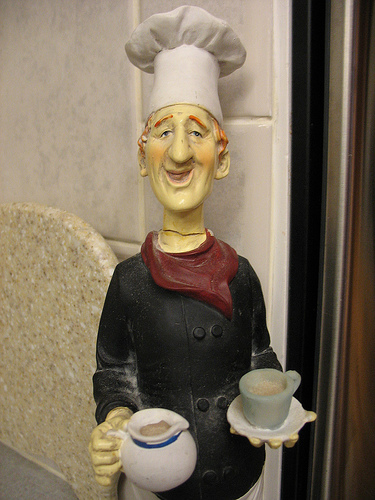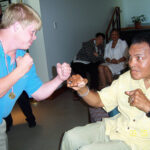You know, you don’t have to look like everybody else to be acceptable and to feel acceptable. – Fred Rogers

He is tall, and thin, with a big nose, and ginger hair. Would you want to be his friend, or can you see past all that?
What does that mean?
I like the quote. While the guy was a bit quirky, and definitely from a different era, the quote hits home for me. The quote says that you don’t have to look like everybody else to be acceptable or to be considered right or OK.
While for some that might be skin color, accent, or favorite way to dress, it impacts almost all of us at some point in our lives. For those who aren’t physically perfect, this quote also has meaning. I’ve had the pleasure to make the acquaintance of a few Thalidomide babies, and they definitely don’t look like everyone else, but they were all great people.
Why is accepting people important?
I would state that it is important to accept people for who they are, even if they look different than what you consider as normal. In ancient Sparta, any physical defect resulted in the death of the infant. Today, that’s usually not the case, most of the refusal to accept someone has more to do with their physical characteristics.
Here is where it becomes tricky. Different cultures have different values or standards for what is normal, and what is or is not acceptable. The vast majority of the prejudices and refusal of acceptance in society is due to the behaviors of others.
Where can I apply this in my life?
For me, I was always tall and painfully skinny. Wearing glasses. Always picked on, always last to be picked for sports (except kick ball and volley ball, proving even I was good for something). And that was just my looks. Then we have to add some of my more prominent non-physical aspects, such as a strong geek streak, solid sci-fi background, a mild stutter, serious verbal dyslexia, and introverted-ness almost beyond measure.
Have you ever known someone who was really tall, short, thin, fat, or some combination of those features? How about big ears, big nose, big teeth? Short stubby fingers or very long ones, or my favorite, really big feet? Perhaps you were that person.
Think back to your days on the playground and remember how those people were treated. What do you think of that behavior? Did you participate in it in any way, or did you befriend and defend them? What would you do differently today, if you were in that situation again?
How much time have you spent thinking about how you treat others, simply based on how they look? What outward appearances do you dislike, or react badly towards? Grab some paper and write down anything and everything you can think of which causes problems for you.
My list includes mostly extremes, morbidly obese, emaciatedly thin, people with significant malformations or asymmetries. What ended up on your list? What can we do to try to treat these people in a more humane and acceptable (and accepting) manner?
To me, the answer is mostly about attitude. If I can convince myself not to care about them, it’s easier to dislike someone. It’s easier to not accept someone you tell yourself you don’t care about them, or don’t want to care about them. If you can dehumanize them, or somehow strip them of their dignity, its’ easier to dislike or ignore them.
I find it easier to dislike someone if I can tell myself that they look that way because of their own choices, as opposed to an inherent flaw in their genetics. I find this particularly prominent with the morbidly obese, or other flaws that can be blamed on their choice of lifestyle.
As someone who used to have to eat everything in sight just to maintain body weight, it is hard for me to imagine being that large. However, when I think of them having a metabolism as screwed up as mine was, but in the opposite direction, I find it much easier to not be creeped out by them, and therefore easier to accept them.
I have only touched briefly on race, skin color, or other things that would point to race, ethnic origin, or other points of differentiation. Most of these aspects of a person are considered by most of the world to be unacceptable to use as a way to discriminate against someone. Hopefully you aren’t treating people poorly because of those aspects of their life.
This post was mostly about the quote, and a person’s physical appearance. For homework, consider all the same points, and apply them to a person’s behavior. How does that change any of the arguments? Do you find yourself on the opposite side of the argument all of a sudden? What does that say about you and your values and beliefs? Are you OK with that, or do you think you need to think about that for a while?
From: Twitter, @dict_project
confirmed at : http://www.brainyquote.com/quotes/quotes/f/fredrogers193083.html
Photo by rfduck







Love this article. Good job.
Thanks for stopping by, and for leaving such kind words.